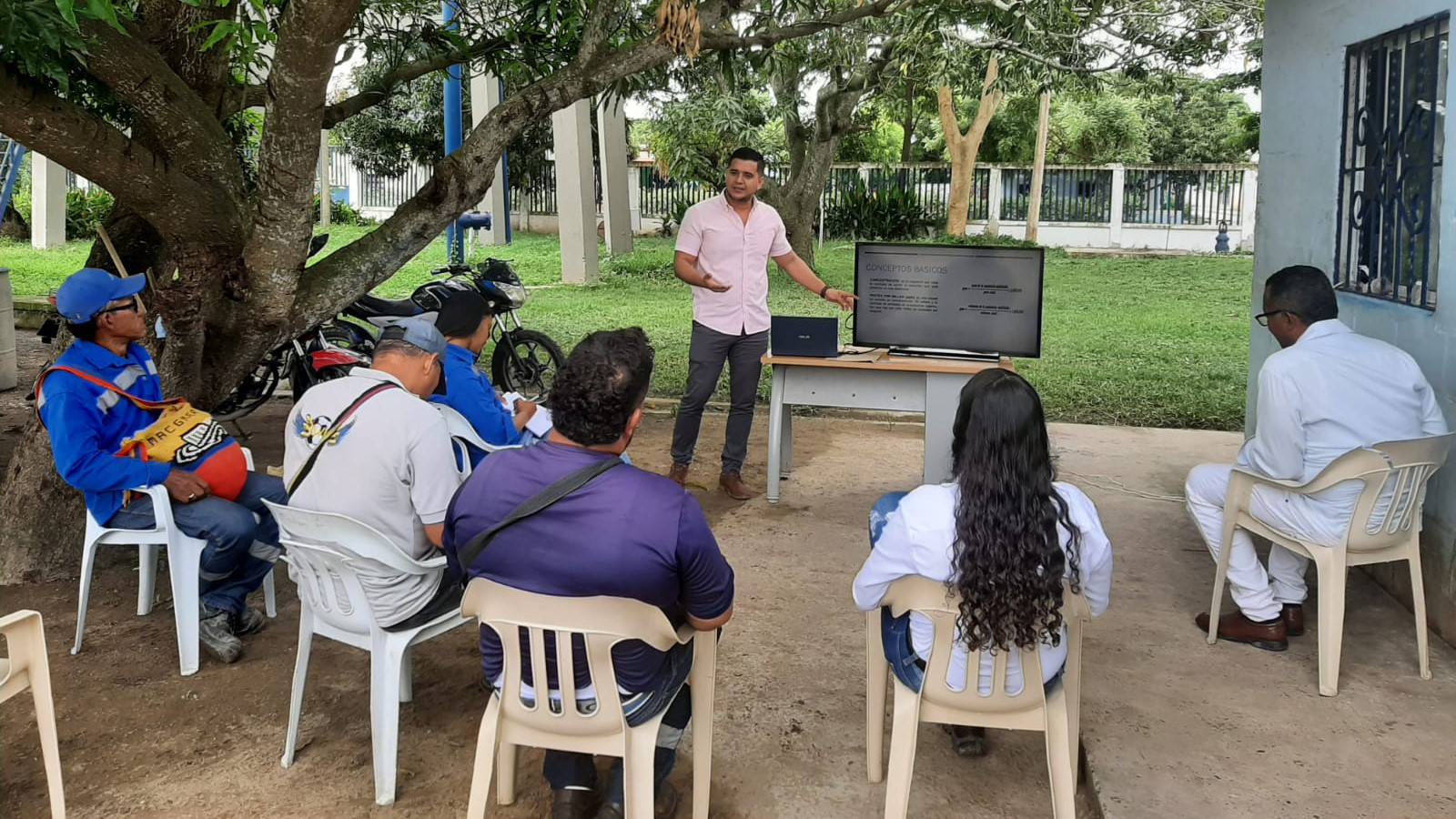The initiatives implemented in Aguas del Sur del Atlántico have resulted in savings of up to 42% in the operations of some plants, benefits in terms of sustainability and an increase of 99% in the water supply network.
Municipalities such as Campo de la Cruz, Santa Lucía and Luruaco now have running water 24 hours a day.
The technological and technical operations of the infrastructure were revised, operating parameters were optimised, and staff began to receive regular training, among other improvements.
The utility Aguas del Sur del Atlántico E.S.P. (Aqsur) is currently optimising its water treatment plants in the Atlántico Sur Department (Colombia). The ongoing project, which began over four years ago, is being rolled out in a partnership between the multinational Idrica (Aguas de Valencia) and Naunet (Saur).
The project started with a preliminary assessment of the operating conditions of each plant through visits and the verification of operating parameters. Aqsur has five conventional plants located in the municipalities of Luruaco, Repelón, Campo de la Cruz, Santa Lucía and Manatí, and two compact plants in the towns of Compuertas and Rotinet.
These differ from each other in terms of their process units (flocculation, sedimentation, filtration and disinfection), as well as in their supply sources, “which made it necessary to monitor operations individually” according to Idrica Colombia’s Production Manager, Alfredo Castro.
The inlet flow levels, the concentration, dosage and volume of chemical products, and the quality attributes related to pH, colour, turbidity and the presence of chlorine in the water were all assessed. Similarly, the operating conditions of each plant were checked according to the water catchment conditions, pumping hours and overall performance.
According to Castro, the three main measures taken to optimize these water treatment plants were the review of the infrastructure’s technological and technical operations, the optimization of chemical dosage parameters, and ongoing staff training.
“For plants to function properly, operators must be prepared. This requires constant training, including practical workshops that help the staff in charge make good decisions, applying the concepts learned, and even proposing ideas for improvement,”
Operational savings and improved water access and quality
In economic and financial terms, plant operating costs have been reduced by 32% per month in the municipality of Repelón and by 20% in Luruaco. Similarly, by implementing the proposed measures, operating savings of up to 42% per month have been estimated in Manatí.
The project has also significantly boosted the numbers of users joining the mains water supply network, from 16,653 in 2018 to 24,404 in July 2022, i.e., an increase of 46.5%. Access to the mains sewer system has also gone up from 4,349 users to 11,438, representing a growth rate of 264%.
In 2018, access to running water and basic sanitation in these seven municipalities was 69% for mains water and 19% for the sewer system. Currently, these indicators stand at 99% and 47%, respectively, representing a 30% improvement in access to drinking water and a 29% rise in sewer connections.
Originally, these municipalities had access to running water from four to a maximum of 12 hours a day, though the average was less than six hours a day. However, as a result of the improvements, Campo de la Cruz, Santa Lucía and Luruaco now have running water 24 hours a day.
Efficient and sustainable drinking water treatment is key to water resource management
“Meeting the targets to provide access to drinking water has highlighted the need to generate solutions which guarantee efficient and sustainable water treatment processes, within a context of integrated water resource management,” concluded Alfredo Castro, Production Manager at Idrica Colombia.
Water is key to the economic and social growth of countries. This is why different international organizations, such as the World Bank and the United Nations, have underscored the fact that utilities must make the necessary investments and interventions to strengthen their ability to supply safe and sustainable drinking water. “These interventions must be accompanied by policies to promote water efficiency and improve water allocation” (World Bank, 2021).



